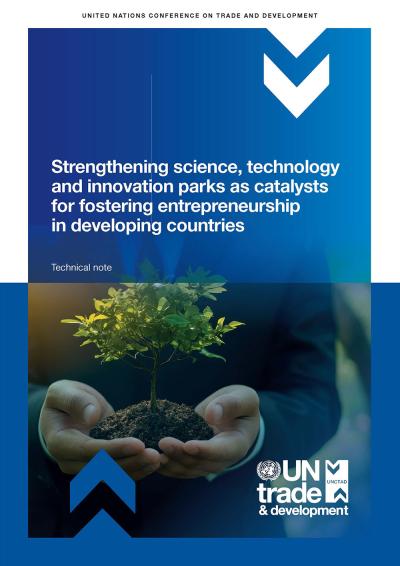
This technical note examines how science, technology and innovation (STI) parks can catalyse entrepreneurship, drawing on international evidence and experiences.
Applying a structured framework to examine how STI parks can support entrepreneurship in developing countries, it aims to guide policymakers in developing and transition economies in designing and implementing STI park policies that promote sustainable and inclusive entrepreneurship.
In many developing countries, entrepreneurship is constrained by fragmented support systems, limited institutional trust and uneven access to critical resources.
This technical note explores how STI parks can help address these challenges. Drawing on systems thinking and entrepreneurship research, this framework introduces a practical approach to clarify how STI parks can activate entrepreneurial potential, link key resources and coordinate support functions.
The framework also informs the subsequent analysis and recommendations, providing a foundation for targeted interventions and capacity-building strategies.
Conclusions
STI parks hold significant, yet often untapped, potential to catalyse innovation-driven entrepreneurship in developing countries.
This potential depends not on any single input, but on the strength of connections among actors, resources and stages of the entrepreneurial journey.
In environments where support systems are fragmented and trust is limited, STI parks can offer the coordination, continuity and relational infrastructure needed to transform isolated initiatives into functioning innovation ecosystems.
Policymakers should recognize STI parks not merely as passive service providers, but as active orchestrators of innovation ecosystems. To fulfil this role, STI parks require clear mandates, outcome-oriented funding and access to international partnerships and learning networks.
With the right policy support, they can effectively connect talent, capital, infrastructure and markets, unlocking entrepreneurship as a powerful driver of inclusive and sustainable development.
This technical note was prepared under the UNCTAD project Science, Technology and Innovation Parks for Sustainable Development: Building Expertise in Policy and Practice in Selected Asian and African Countries, financed by the 2030 Agenda for Sustainable Development Subfund under the United Nations Peace and Development Fund.


